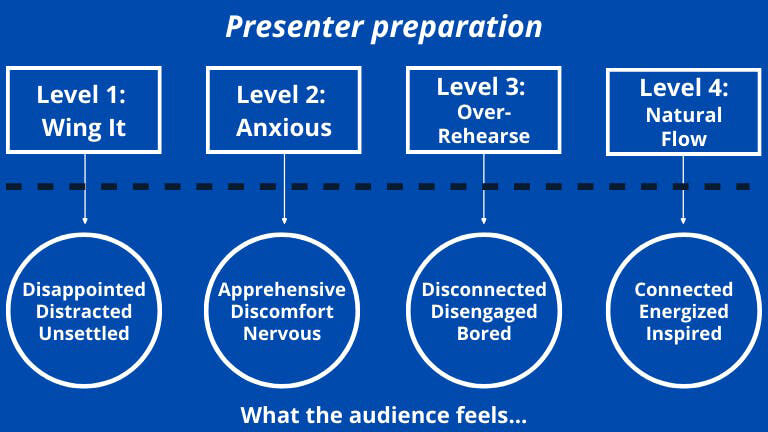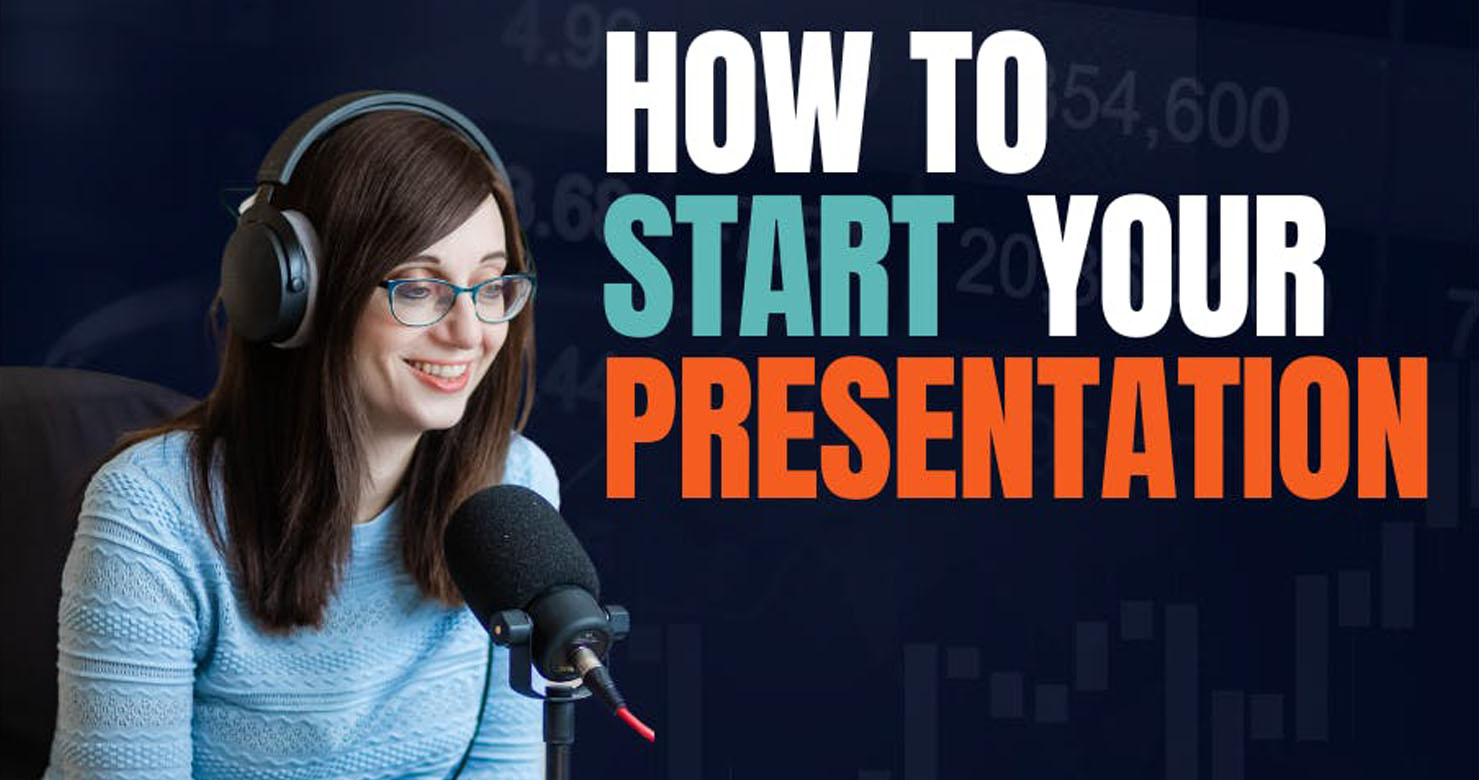
I always used to rehearse my presentations over and over.
I was SO well rehearsed that I knew my entire script inside out.
But something didn’t connect when I delivered my talk.
There was something missing.
Eventually I realised:
I wasn’t present during my presentation. My head was always in the next line of my script.
Who are we scripting for?
The truth is my over-scripting was for me, not for the audience.
I was nervous. I worried I’d forget what to say.
I worried the audience would realise I didn’t know what I was talking about.
Perhaps you’ve faced this too.
We think we NEED a script because without it we can’t cope.
- We are nervous
- We are stressed
- We have imposter syndrome
How can we build connection?
When I talk to people about their presentation goals what I hear again and again is:
- I want to sound natural
- I want to connect with the audience
It’s about finding the balance between:
- Managing our nerves and confidence
- Being present and sounding natural
Is ‘winging it’ better?
If you don’t script a talk, that’s not the same as winging it.
The best presenters prepare. A lot.
Think of the most natural speaker you’ve ever watched deliver a talk. I promise you they’ve worked hard to make their presentation great.
Preparation and practice are ESSENTIAL.
Preparation is more than writing a script. It’s everything from start to finish:
- Knowing and understanding your audience
- Crafting the audience transformation
- Developing the narrative arc
- Integrating stories
The best presenters know EXACTLY where they will take the audience, and EXACTLY how they will get them there.
But that is NOT the same as having every word scripted and learned off by heart.
Where does rehearsing go wrong?
There’s a step before mastery of natural flow and connection.
It’s where you script your talk, learn the script, then read the script out to the audience.
But that’s not meaningful practice.
It is nerves. Unfortunately it’s where a lot of presenters sit.
Once we get past the ‘winging it’ idea, overpreparation is often the stage where people stop.
It’s where I sat for years when I delivered talks that were GOOD, but they weren’t GREAT.

How can I achieve mastery?
The best performers are in music, drama, and arts.
They prepare and rehearse. But they also know how to improvise and how to connect with a live audience.
This is the sweet spot.
Prepared. Practised. Natural. Connected.
Professional performers have different ways of achieving this:
- Script fully. Practise SO much that they don’t even need to think about what’s coming next they KNOW.
- Script fully but have a pause. Practice lots then have a break before the performance to keep it fresh.
- Partially script. Script and rehearse the beginning and end and have a guide for the middle. Allow the middle to flow.
- Improvise fully.
There is no one way to achieve mastery. But we do need to push past the stage of being fully scripted and reading robotically.
The audience can tell when a presenter is reading out a script. And they switch off.
Usually the presenter doesn’t even notice the disengagement. The presenter’s brain focuses on remembering the next line.
The reason you rehearse is not to be a robot, but to have the content and structure second nature.
Only then can you allow your natural ability to read the room and get into the flow. You can use audience reaction to guide your towards your best performance.

7 steps to preparing well
Finding the right prep routine for you is hard, but these 7 tips can help.
1. Script the beginning and end.
The start and end of your presentation is critical. It’s your first change to engage the audience. And it’s your last chance to leave them with something memorable.
All versions of good preparation include planning the beginning and end.
Know where you’re headed and avoid fizzling out with a
‘…and that’s it!”.
2. Practice it 10 times.
This isn’t an exact science, but it’s a rough guide.
It doesn’t need to be ten full run-throughs. You could practice your beginning and end on the walk to the train station or in your car.
Often there are bits of the presentation you find difficult. These are the parts you should rehearse more.
3. Record yourself and listen back.
You might be surprised when you listen back to yourself. What you thought was stunning storytelling might be awkward rambling on review.
Take time to listen to how you come across and make adjustments based on what you see.
4. Run it past a friend.
Deliver your talk to someone you know and trust.
They will often highlight areas where you lose the audience or parts that don’t make sense.
This is a good way of getting quick feedback.
5. Trial it in front of a smaller audience
Try and arrange a practice run in front of a smaller, different group of people.
Having a live rehearsal can help. You generate the nerves and this allows you to practice some of the things you’re most worried about.
6. Practice pausing and sitting with the silence.
The thing people seem to fear most in presentations is that they fluff their lines or won’t know what to say. In truth, silence on stage can be very powerful. You need to own it.
Practice talking about a topic and then pausing. Instead of using the pause to panic, use it to breathe, regroup, and redirect your thoughts.
The audience will not know what you intended to say anyway. Your silence can actually help connect you and gain their attention.
7. Accept that nerves will be there.
Everyone has nerves when they present.
The people who say they don’t are usually the people delivering bad talks. Because they don’t care enough.
Nerves are your friend. They don’t need to overwhelm you.
Ignore the Imposter Syndrome.
Remind yourself exactly why you’re the right person to deliver it.
Nerves don’t need to rule your performance.
I’ll leave you with a final thought: “Through practice, gently and gradually we can collect ourselves and learn how to be more fully with what we do.” – Jack Kornfield




